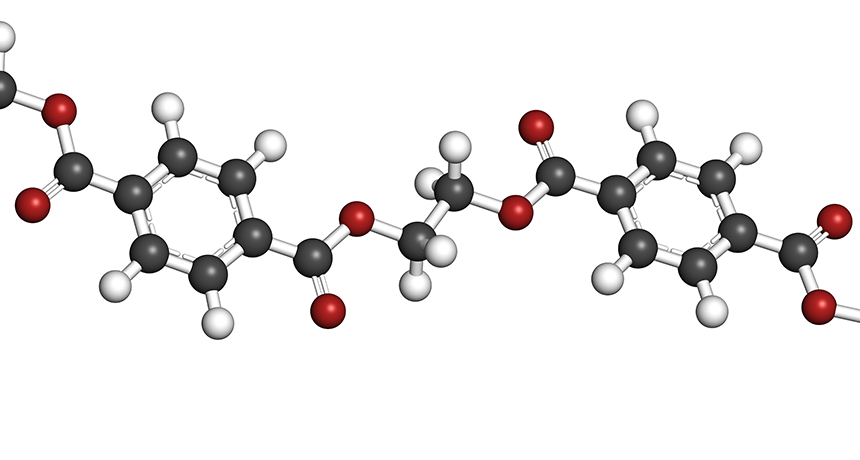Recognizing Polymers: The Science Behind Versatile Products
Recognizing Polymers: The Science Behind Versatile Products
Blog Article
Checking Out the Varied Applications and Advantages of Polymers in Different Industries
Polymers, with their diverse range of homes and functionalities, have actually come to be essential in various markets, each reaping unique take advantage of their application. Polymers. From improving safety and security and efficiency in the automobile industry to changing clinical tools in the medical care industry, polymers play a critical function. Their environment-friendly nature is changing the landscape of sustainability methods. As we look into the depths of polymers in electronic devices, we discover sophisticated technologies, while their architectural stability changes the world of building and construction and facilities. The pervasive impact of polymers across markets is a testament to their versatility and flexibility, forming the future of numerous industries.
Automotive Industry Applications
Polymers play a pivotal function in enhancing the efficiency and resilience of various elements within the vehicle market. One popular use of polymers in the automotive industry is in the production of light-weight parts.

Medical Care Sector Advantages
In various health care applications, the advantages of making use of polymers are widely identified for their varied variety of helpful homes. Polymers play a critical function in the health care industry due to their adaptability, biocompatibility, and cost-effectiveness. One of the key benefits of polymers in medical care is their ability to be customized to details requirements, such as adaptability, sturdiness, and biodegradability, making them suitable for a vast range of clinical applications.
Polymer-based products are thoroughly used in medical devices, such as catheters, implants, prosthetics, and medication delivery systems, as a result of their biocompatibility and capacity to mimic all-natural tissues. These materials can reduce the risk of sensitive reactions or denials, improving client safety and security and outcomes. Furthermore, polymers are light-weight, making them appropriate for wearable clinical gadgets and ensuring individual comfort.
In addition, polymers make it possible for the development of cutting-edge therapy approaches, such as hydrogels for cells design and nanocomposites for targeted medication shipment. Their ease of processing and sterilization makes them vital for keeping high standards of health in healthcare settings. Generally, the varied advantages of polymers contribute significantly to improvements in clinical modern technology and client treatment.
Environmental Benefits of Polymers

Moreover, polymers can contribute to energy financial savings because of their light-weight nature. In markets such as transport, light-weight polymer products can help in reducing fuel usage and greenhouse gas discharges. Additionally, polymers can he has a good point allow the development of energy-efficient items such as insulation products that boost power preservation in structures.
Additionally, polymers play a vital role in decreasing water pollution. The usage of polymer-based purification systems can effectively eliminate toxins and contaminants from wastewater, securing water sources and ecosystems. On the whole, the environmental advantages of polymers make them important possessions in promoting sustainability and eco-friendly methods throughout various sectors.
Polymers in Electronic Devices and Technology
Thinking about the raising need for innovative and sustainable services in contemporary markets, the assimilation of advanced polymer innovations in the realm of electronic devices and technology has become a crucial technique for driving effectiveness and performance. Polymers have revolutionized the electronics industry by allowing the production of lighter, extra versatile, and resilient electronic tools. From smartphones to medical devices, polymers play an important role straight from the source in improving product design and capability.
One considerable benefit of polymers in electronic devices is their protecting residential or commercial properties, which help protect fragile electronic parts from environmental aspects and electrical interference. In addition, polymers are important in the growth of adaptable displays, wearable innovation, and printed electronics, offering endless opportunities for developing clever and interconnected gadgets.
Additionally, using polymers in digital product packaging has actually resulted in advancements in miniaturization and thermal monitoring, improving the total performance and integrity of electronic systems. As modern technology remains to evolve, the versatility and versatility of polymers will undoubtedly drive further technology in the electronic devices sector, forming the future of innovation.
Duty of Polymers in Construction and Framework
The combination of innovative polymer products in building and infrastructure tasks has actually reinvented the means frameworks are designed and integrated in modern-day times. Polymers offer many advantages in the building and construction sector due to their versatility, resilience, and cost-effectiveness. One crucial role of polymers in building and construction is their usage in finishings and sealers, offering protection versus environmental aspects such as dampness, UV radiation, and rust. In addition, polymers are used in the manufacturing of light-weight and high-strength composite products, enhancing the structural integrity of structures while lowering overall weight.
Additionally, polymers play a crucial duty in lasting building practices by making it possible for the useful link growth of energy-efficient structures. Insulating products made from polymers help manage indoor temperature levels, decreasing the demand for heating and cooling down systems and ultimately lowering energy consumption - Polymers.
Verdict
In final thought, polymers play an important duty in numerous markets such as automobile, healthcare, environmental, electronic devices, and construction. Their versatile buildings make them important in creating cutting-edge solutions and products. From boosting fuel efficiency in cars to boosting clinical gadgets, polymers use numerous benefits. In addition, their effect on decreasing waste and promoting sustainability highlights their value in modern-day applications. The prevalent use polymers demonstrates their significant payment to advancing innovation and improving lifestyle.
Report this page